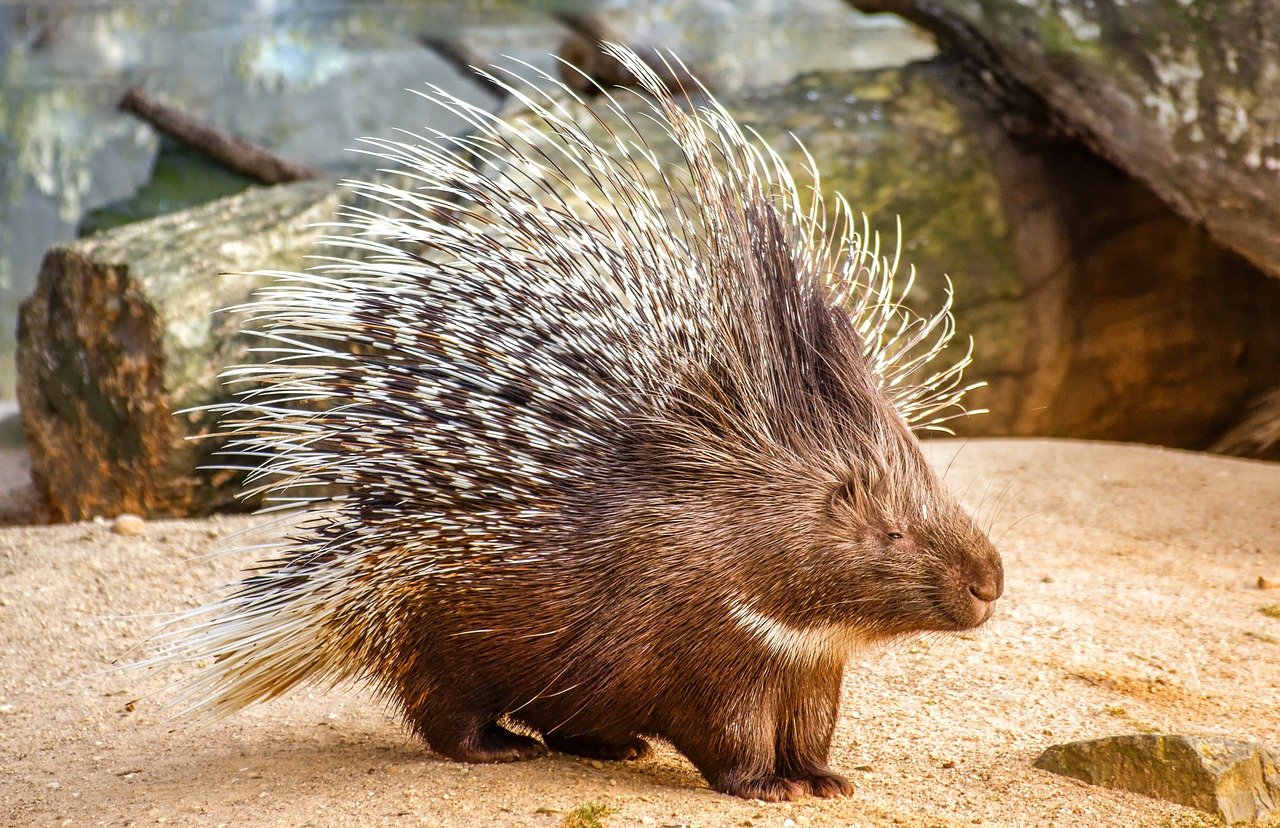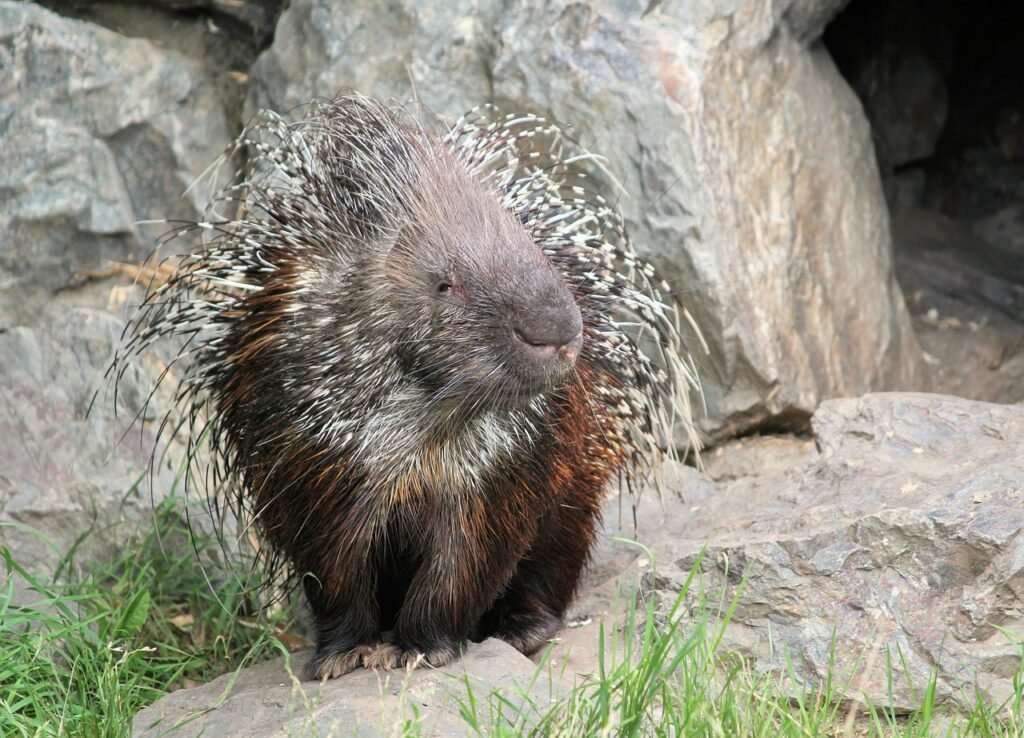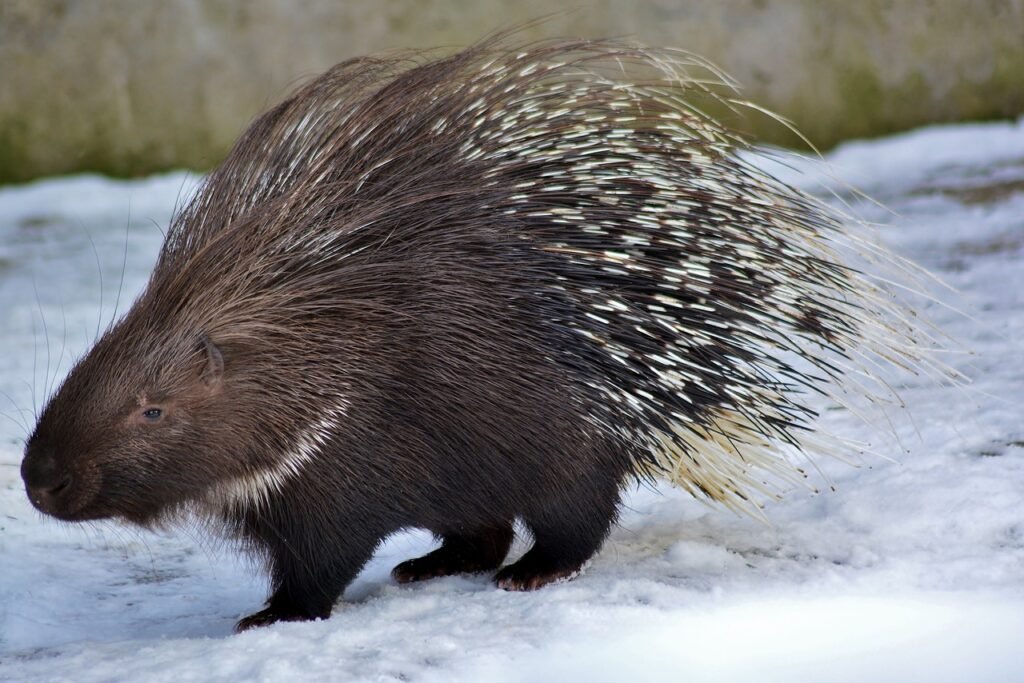Ensuring the well-being of your porcupine involves attentive care and a keen understanding of the signs that indicate a happy and healthy companion. While porcupines are known for their quills and unique appearance, monitoring their overall health goes beyond their distinctive features. In this guide, we explore the key indicators of a content and thriving porcupine.
1. Active and Engaged Behavior:
- A healthy porcupine is typically active, curious, and engaged with its surroundings. Look for signs of exploration, playfulness, and an interest in its environment. A porcupine that interacts with toys and engages in physical activity is likely in good health.
2. Normal Eating Habits:
- Regular and healthy eating habits are crucial indicators of a porcupine’s well-being. A happy porcupine will exhibit a healthy appetite, consuming its regular diet without signs of discomfort or reluctance.
3. Quill Maintenance:
- The condition of the quills is a visual cue to a porcupine’s health. Healthy quills are clean, well-formed, and evenly spaced. Regular grooming and self-maintenance are signs of a content porcupine.
4. Bright and Clear Eyes:
- Bright and clear eyes are indicative of good health. Cloudiness, discharge, or any signs of irritation may suggest underlying health issues and should be promptly addressed.
5. Alert and Responsive:
- A healthy porcupine is alert and responsive to its surroundings. It will react to stimuli, show curiosity, and exhibit awareness. Any sudden changes in behavior or responsiveness may warrant attention.
6. Normal Breathing Patterns:
- Observe the porcupine’s breathing patterns. Normal breathing should be steady and free from wheezing or labored breathing. Respiratory issues may manifest as changes in breathing patterns.
7. Maintained Body Weight:
- A consistent and maintained body weight is a positive sign. Drastic weight loss or gain can be indicative of underlying health concerns, and monitoring weight is crucial for overall health assessment.
8. Healthy Coat and Fur:
- A glossy and well-maintained coat is a positive indication of health. Check for signs of shedding, matting, or abnormalities in the fur that may suggest skin or coat issues.
9. Normal Elimination Patterns:
- Regular and normal elimination patterns are essential indicators of digestive health. Consistent bowel movements and urination without signs of distress are positive signs.
10. Positive Social Interactions:
- Porcupines are social animals. Positive interactions with their human caregivers and, if applicable, with other porcupines indicate contentment and mental well-being.Regular observation and interaction with your porcupine will help you establish a baseline for what is normal behavior and appearance. If you notice any deviations from these signs of good health, consult with an experienced exotic animal veterinarian promptly. Routine veterinary check-ups, a balanced diet, and a stimulating environment are key components in ensuring your porcupine’s ongoing health and happiness.



